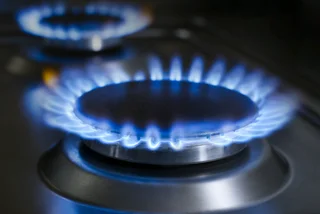Starting in 2024, both households and businesses in the Czech Republic will see an increase in their energy bills as the government has confirmed its decision to cease contributing to electricity and gas payments. This change will affect the regulated component of energy prices, resulting in higher prices.
An end to support after falling prices
The decision means that the state will no longer cover the expenses for subsidized energy sources (POZE), costs associated with energy losses in the transmission system, expenses related to ensuring system services, or price ceilings. The government's ruling was made during a recent meeting.
The current measures that protect consumers from soaring electricity and gas prices this year and did so especially in 2022 are temporary, and aimed at addressing the extraordinary situation when energy prices reached record highs.
Energy prices are set to rise next year, along with increases in distribution fees. The regulated component of energy prices is expected to increase by approximately 20 percent, with the final amount to be determined by the Energy Regulatory Office in November.
This year, however, energy prices have been on the decline, which households and businesses have benefited from. Most experts predicted this downward trend would continue. Many energy providers in the market are currently offering rates below the government-set price ceilings.
EXPAT TIP: ENERGY PRICE-COMPARISON SITES
For example, a family using gas for cooking, water heating, and general heating would save CZK 15,000 over one year compared to spring prices. Signing a new gas-supply contract now could result in approximately 15-percent lower costs than in March this year.
The state can longer afford to grant subsidies
Prime Minister Petr Fiala emphasized that taxpayers can no longer subsidize energy prices in the same manner due to the absence of extraordinary circumstances. He expects the impact of this change on households and businesses to be manageable, partially offset by falling electricity prices.
Finance Minister Zbyněk Stanjura also pointed out that state aid for high energy prices had been received by both those in need and those for whom it did not constitute a financial burden. The government will also reintroduce fees for using renewable energy sources (these were canceled last year).
For some households, this increase may come as a shock, but there are social safety nets in place, such as housing allowances, to help mitigate the impact. Housing allowances are intended for households whose housing costs exceed 30 percent of their income.
In the current year, the state provided CZK 38 billion in subsidies for the regulated component and allocated an additional CZK 27 billion in the budget for POZE payments. The decision to cap energy prices is estimated to have cost the state approximately CZK 60 billion.

A change in calculating prices
Under a new methodology by the Czech Statistical Office (ČSÚ), energy prices in the Czech Republic have been recalculated to better align with European Union standards. This approach, which calculates actual realized prices instead of bid prices, brings the Czech Republic's energy prices more in line with the EU average, contradicting earlier data based on the bid price model.
In the second half of 2022, electricity offer prices reached CZK 9,412 per megawatt hour (MWh), but the actual realized prices were CZK 6,488 per MWh. When factoring in the cost-saving tariff implemented by the government to offset expensive energy costs, the actual price paid by consumers was CZK 4,214 per MWh. Similarly, gas prices had bid prices of CZK 4,662 per MWh, but consumers paid CZK 2,610 per MWh.
The new methodology aims to provide more accurate data that better represents energy price realities. Analyst Jiří Gavor of the Association of Independent Energy Suppliers noted that Eurostat doesn't prescribe a specific reporting approach, and most EU states likely report average realized prices.
The ČSÚ will now refer to realized prices as primary data for energy prices, ensuring compliance with Eurostat's standards for international comparisons. The recalculated prices help contextualize the Czech Republic's energy costs, which were previously among the highest in the EU due to the older bid price model.
As the government ends its direct contribution to energy prices, consumers in the Czech Republic will need to prepare for higher energy costs, emphasizing the importance of energy efficiency and conservation measures.












 Reading time: 3 minutes
Reading time: 3 minutes 




























